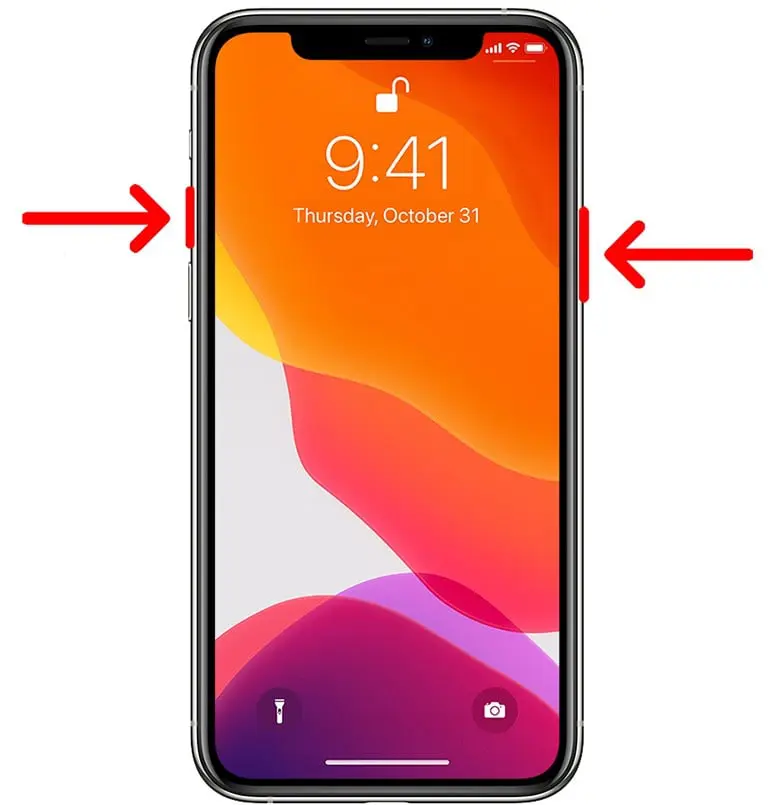
Here is a guide that shows you how to take a screen shot on any generation of iPhone
It is not possible to print a screen from your iPhone screen because there is no print screen option. In spite of this, you can easily capture a screenshot on your iPhone by pressing just a few buttons. There is no difference in whether you have an iPhone 8, iPhone 8, iPhone 15, or any other model; you can still take screenshots of your device. It is a great way to share smartphone issues, funny moments from web pages, or even strange text messages you may have received by taking screenshots of them. Basically, all you have to do is learn which buttons to press, and that’s exactly what we’ll help you with in this article. Additionally, we will provide you with some tips on how to enhance your iPhone screen capture abilities in the following section.
In order to take a photo, you just need to press two physical buttons at the same time, and a picture will be taken. In spite of this, the exact buttons that you need to press may vary depending on the model or version of iPhone that you are using.
With the latest iPhones, you can take screenshots of your screen
You will need to push these keys if you have an iPhone that does not have a home button. Your iPhone is one of the best iPhones that are available today, which means you are using one of the most perfect iPhones available right now.
The first step is to take a look at it. On your iPhone, the first button you need to click is the one located near the upper-right edge of the screen, which can be easily found. You usually hit this key in order to turn off your iPhone’s screen and then lock it.
Here are the steps you need to take. There is also another option you will have to hit, which is Volume Up. The iPhone’s home button is located to the left of the iPhone’s screen.
Step 3: Follow the steps below. Click both buttons at the same time in order to create a screenshot.
Using the “Home” button on an iPhone, you can take a screen shot and save it to your computer
It’s very likely that if you are still using one of the older iPhone models or if you have just purchased an upgraded iPhone with an older model, you’ll follow the same steps in the above paragraph; you will, however, press the home button in the same way you did with the other button mentioned above.
Taking a screenshot with AssistiveTouch and snapping it together
Through the simple menu on the iPhone, which is just a couple of taps away, AssistiveTouch allows users to make more advanced gestures using the iPhone (such as swipes, pinching, and using 3D Touch) using the touch-based gestures built in. It can be helpful in many ways, but in this particular situation, it’s a different way to capture screenshots when you are unable to press both buttons at the same time, if one button is not working properly, or if you are unable to press both simultaneously. Learn how to set this up and how to use the feature so that you can take advantage of it.
Step 1. Open the . Settings application.
Step 2: Tap Accessibility.
Step 3: Tap Touch.
Step 4: Tap AssistiveTouch
5. Turn on assistance and touch off. The assistivetouch button pops up on the screen. It bears a resemblance to an array of faded circular circles.
Step 6: Tap Double-Tap.
Step 7. Scroll down, then click Screenshot.
Step 8. Scroll up to the screen. The assistiveTouch button will remain on the display.
Step 9: Once you’ve found an area you’d like to save an image, click twice on the AssistiveTouch button. The iPhone screen will flash briefly in white. You’ll also be able to hear the same sound as you would when you take photos using the iPhone Camera application, so the device isn’t in silent mode.
Step 10. An image thumbnail will be displayed in the bottom left area in the lower-left corner of your screen. Within a couple of seconds, the thumbnail will vanish, and the image will automatically be saved in your library of photos. It is also possible to remove it anytime to add it to your photo library right away, or click on the image to crop it, add annotations, and upload it together using the steps previously described.
It is important to note that AssistiveTouch offers a variety of different ways of accomplishing the same task. If, for instance, you would like to set the screenshot shortcut to be a long press instead of a double tap, you should do so. In addition, you will also be able to access the menu by simply tapping the assistive touch button, which also includes a variety of other options. It is also possible to take an image from this menu by clicking the device’s menu and then selecting More Screenshot from it. This could prove useful if you are looking to use the double-tap as well as the long-press actions for various other things.
Edit and add annotations to an image
After you’ve successfully taken the image, you’ll be able to see tiny previews in the corner to the left of the screen. The preview will disappear within a couple of seconds; however, you are able to move it left to close it. This way, it is saved in your library. You can then continue doing what you had been doing prior.
You can, however, take a screenshot and perform a few quick edits or annotations prior to that happening. Here’s how.
Step 1. When you have taken a picture, click on the thumbnail, which appears on the left-hand side of the screen.
Step 2. Your image will appear with a simple editing window and is ready for cropping or adding to an annotation.
Step 3. If you’d like to save just a portion of your image You can adjust the handles for cropping to draw a line around the area you would like to save. It is also possible to utilize the traditional pinch-to-zoom gesture to expand a section of your image.
Step 4. It is also possible to add an annotation or markup to your image by drawing your finger. An array of annotators is located in the lower right corner of the screen for editing. There are also undo and redo buttons on the top of the screen, so that you are able to reverse any changes you aren’t happy with.
Phase 5: To add more advanced annotations, such as the text box, magnifier loupe, or even your signature, press the plus button on the lower-right corner. Select the desired option in the menu that pops up.
Step 6. After you’re done making changes, click Done in the upper left corner.
7. Select Save to Photos and Save to Files for saving the image to your library of photos or to iCloud Drive, depending on the option. Also, you can select the delete button in case you’ve changed your opinion and no longer intend to save it.
If you snap many photos in succession, each one will show up on the editing screen simultaneously. The user can swipe left or right to navigate between them and then edit each separately. The ability to delete any individual photo from the editing screen is available by clicking the trashcan icon on the upper right of the display. Clicking “Done” will ask you to save or erase the entire collection.
Take a picture and share it with us.
Screenshots by default will automatically be saved to your library of photos, which you are able to share exactly the same way you share any other image. But if you’re looking for specific screenshots to send out to someone else or share on social media sites, you can instantly share them. It also means you can avoid adding a photo to your photo library if you do not want to store it in the future. Here’s how.
Step 1. Once you’ve taken a photo, tap the thumbnail at the bottom left corner of the screen.
Step 2. Your screen will display using the annotation mode that was described in the section before.
Step 3. If you’d like to crop or add annotations to the image before sharing, then go ahead.
Step 4. After you’ve finished, press the Share button located in the upper-right corner.
Phase 5: A Share Sheet for iOS will open with the ability to share the image through text messages or emails, post it to social media sites, transfer it to an additional Apple device using AirDrop, or store it in a different location similar to Apple Notes.
Step 6. If you wish to upload your screen shot to another website, click the Share button once more. It is possible to repeat the steps until you would like to share your screenshots in several locations.
Step 7. Once you’ve finished sharing, tap Done on the left-hand side of the screen.
Step 8. Select the Save feature for Photos and save to files in case you’d like to save a copy of your screen shot; otherwise, you can tap the delete button. This choice only affects whether or not your screenshot is saved to the photo library of your computer or iCloud Drive. It is still sent to or saved by all other places that you’ve shared the screenshot with.
Did you know you can reset the functionality of your iPhone using button combinations? You can learn more about how to do this in our tutorial. Become an expert on your iPhone’s features if you’re new to iOS with these additional iOS strategies and tips.








